CONTAINS SPOILERS
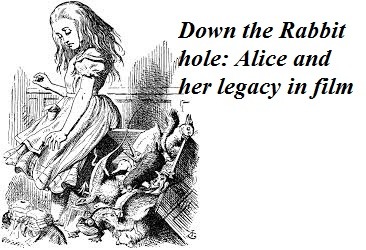

Valerie in relation to the down the rabbit hole trope.
Like Alice, Valerie’s adventures take place in a dream of her own creation. However the dreamworld that Valerie navigates through is undoubtedly a distorted version of her own village, not another world per say. Whilst Valerie does traverse through underground lairs (most notably the Weasel’s hideout) she doesn’t enter any worlds through portals. However Valerie’s story is a coming of age story, on top of the obvious passage to womanhood, Valerie finds her feet in a changing world which she can no longer recognize. Valerie’s tale is an almost inversion of the down the rabbit hole archetype. She doesn’t find another world or get trapped in one, but the world she knows distorts and changes around her, leaving it undecipherable.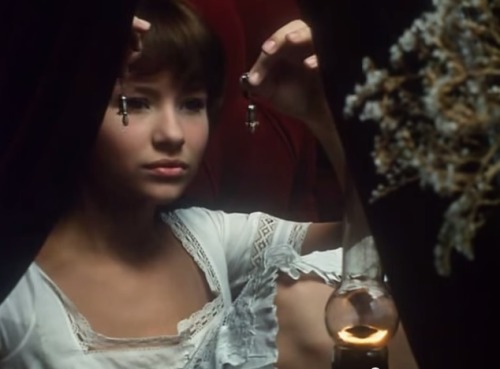
Valerie believes that her wondrous, weird and disturbing set of adventures are triggered due to her magical earrings but its actually her first mensuration which triggers Valerie’s stumble into her dreamworld. Which leads me nicely to…

A child’s eye view.
One of the things which is emphasised in Valerie and her Week of Wonders is Valerie’s frequent misunderstandings surrounding the adult world. Just like the way that Alice’s dreamworlds offer a child’s eye view of a mad world of adults, Valerie’s dreams are full of oversimplification of a world she cannot understand. So lust becomes vampirism and magical earrings can save her from various unwanted fates.
Valerie’s imagination is wild and unpredictable but when certain adventures become too frightening for her, Valerie’s magical earrings or her would-be boyfriend Eagle save her, or she saves herself. When Valerie is carried away by Eagle after fending off the monstrous Weasel she tries not to panic by reminding herself that she is asleep really and that
all this is a dream
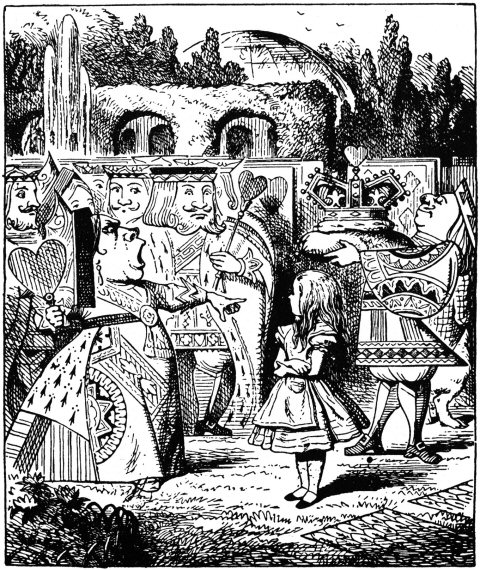
Alice also possesses a fearlessness which drives her forward in her dream adventures. In wonderland in the beautiful garden, she defies the Queen of Hearts and although threatened with execution, does not seem to care all that much.
`How should I know?’ said Alice, surprised at her own courage. `It’s no business of mine.” The Queen turned crimson with fury, and, after glaring at her for a moment like a wild beast, screamed `Off with her head! Off—’ `Nonsense!’ said Alice, very loudly and decidedly, and the Queen was silent. The King laid his hand upon her arm, and timidly said `Consider, my dear: she is only a child!’
Valerie and youth
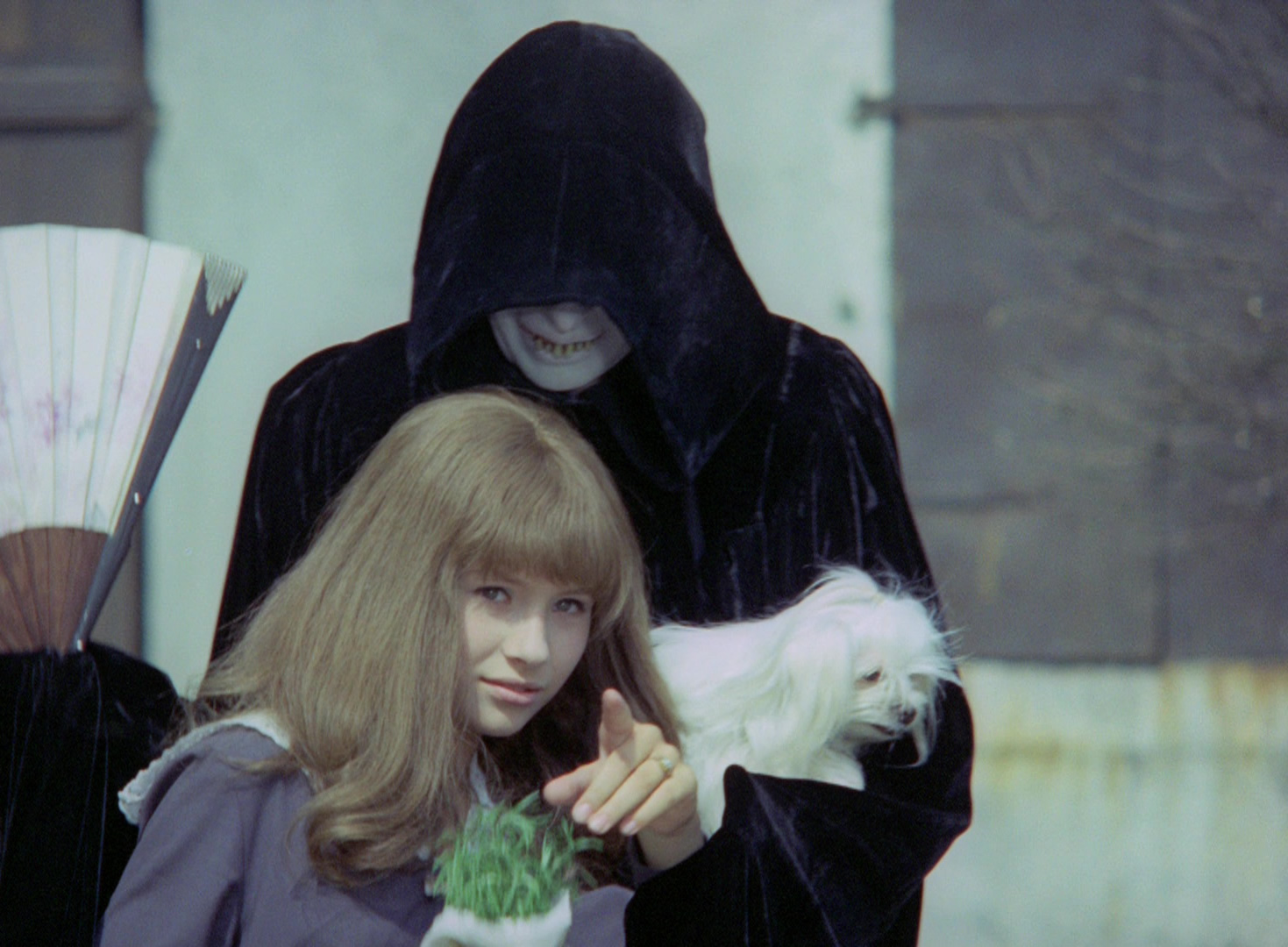
Valerie’s innocence is also a key part of her personality, and her nature even sees her saving several characters with questionable morality. She helps the weasel even after he attempts to vamperise her, and she still cares about her vamperised Grandmother who was seduced by the Weasel by his offer of unlimited youth.

Valerie is associated with a purity which is impossible to corrupt, her white bedroom and music box leitmotif harking back to her childhood days before her wonders began. Valerie is also innocent in the way she views her own body, when menstruation blood drops on to a daisy, Valerie is fascinated and plucks the daisy and sleeps with it curled in her hand.
Alice’s innocence is shown in the way that she defies the tyrannical Queen of Hearts and constantly questions the adults she faces. Their answers are often as cryptic and undecipherable as the hatter’s riddle with no answer in Wonderland, or the poem Jabberwocky that she finds in the Looking-Glass World.
Similarly Valerie’s search for answers only reveals surreal nonsense. In an attempt to decode her family tree she realizes that the Vamperic Weasel is the local priest, her father and a man called Richard, often all at once. Adults in Valerie’s dreams are either bizarre creatures or dangerous vampires.
Rebellion against adult rule.
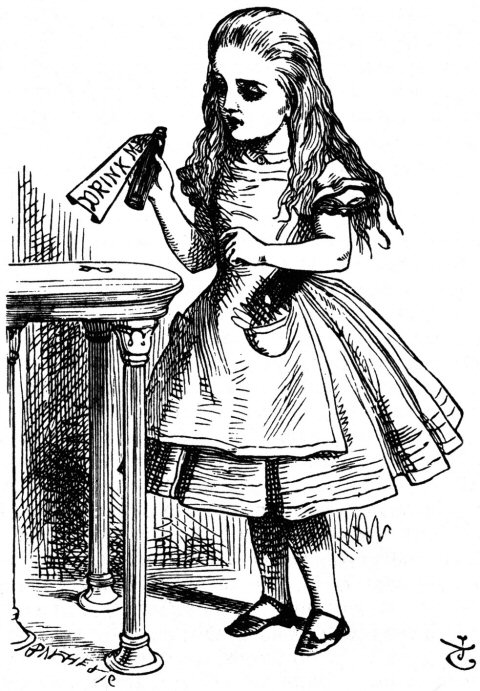
Alice’s adventures are often spurred by ignoring authoritative rules by adults. In deciding whether to drink the drink me bottle in Wonderland, she remembers-
she had read several nice little histories about children who had got burnt, and eaten up by wild beasts and other unpleasant things, all because they WOULD not remember the simple rules their friends had taught them: such as, that a red-hot poker will burn you if your hold it too long; and that if you cut your finger VERY deeply with a knife, it usually bleeds; and she had never forgotten that, if you drink much from a bottle marked `poison,’ it is almost certain to disagree with you, sooner or later.Alice disregards this advice given to her and this is a catalyst for more of her adventures.
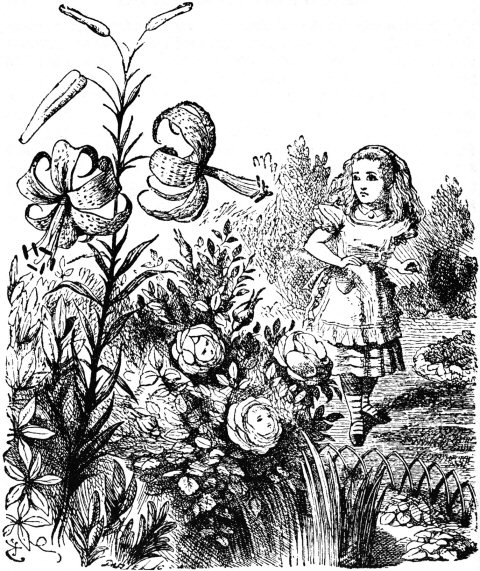
in Through the Looking-Glass, she wonders whether to go back to reality and give up traversing the Looking-Glass World due to a path which she can’t reach. This is adult advice, but once again Alice disregards it in favour of a dream adventure.
`I’m not going in again yet. I know I should have to get through the Looking-glass again – back into the old room – and there’d be an end of all my adventures!’
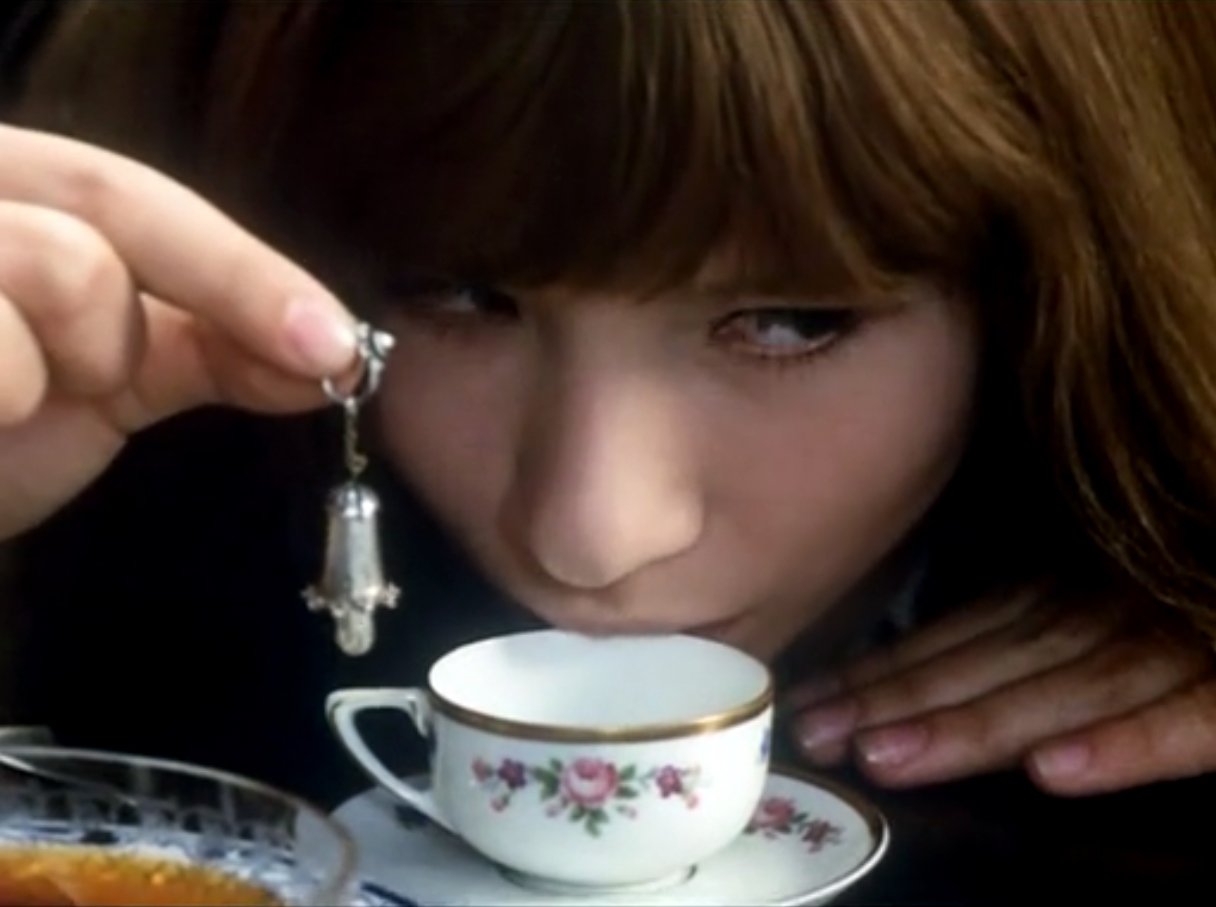
Similarly Valerie disregards her grandmother’s advice at the beginning of her dream to put away her earrings now that she is a young woman. Valerie dismisses this advice as she is curious to see what will happen and her week of Wonders follows.
Valerie, Alice, and dreams
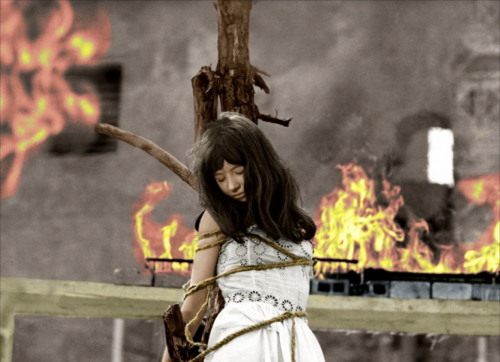
Valerie also defies authority when she is tried by a priest accusing her of seducing him (he in fact tried to vampirize her) despite this bizarre and stupid accusation the townspeople believe him and Valerie is tried for witchcraft, culminating by her being burnt at the stake. Valerie mocks the priest and townspeople and swallows a magical, edible pearl given to her by Eagle. She becomes invisible, unknown to everyone around her. After thanking Eagle, she retires home to bed, only to wake up the next morning and realise that her adventures were all a dream.
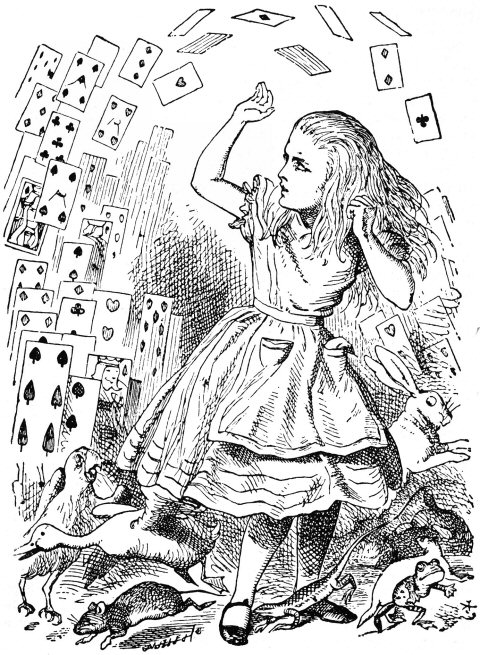
Similarly Alice’s dream of Wonderland ends with her giving evidence at the trial of the Knave of Hearts, only to be tried herself. After growing to an incredible height she mocks the court and the Queen of Hearts. Only to be attacked by the pack of playing cards and waking up on the riverbank with her sister, realising that Wonderland was a dream.
In Through the Looking-Glass Alice becomes Queen of the Looking-Glass World but her coronation party descends into nightmarish pandemonium. Alice decides to take action-
`Who cares for you?’ said Alice, (she had grown to her full size by this time.) `You’re nothing but a pack of cards!’ At this the whole pack rose up into the air, and came flying down upon her: she gave a little scream, half of fright and half of anger, and tried to beat them off, and found herself lying on the bank, with her head in the lap of her sister, who was gently brushing away some dead leaves that had fluttered down from the trees upon her face. `Wake up, Alice dear!’ said her sister; `Why, what a long sleep you’ve had!‘
There was not a moment to be lost. Already several of the guests were lying down in the dishes, and the soup ladle was walking up the table towards Alice’s chair, and beckoning to her impatiently to get out of its way.
`I can’t stand this any longer!’ she cried as she jumped up and seized the table-cloth with both hands: one good pull, and plates, dishes, guests, and candles came crashing down together in a heap on the floor.
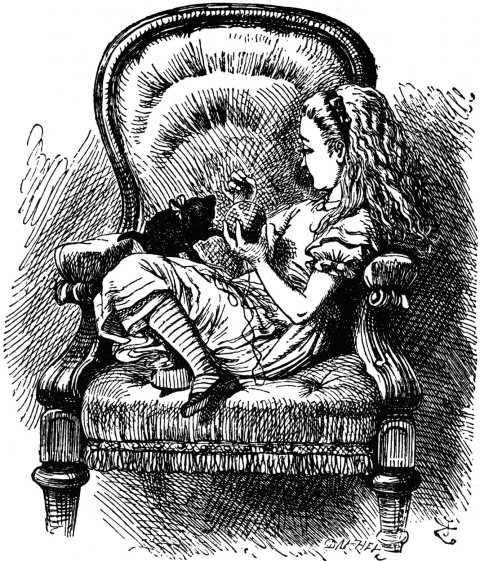
and finally awakes in the peaceful surroundings of her drawing-room, real life, and cats.
`Your majesty shouldn’t purr so loud,’ Alice said, rubbing her eyes, and addressing the kitten, respectfully, yet with some severity. `You woke me out of oh! such a nice dream! And you’ve been along with me, Kitty – all through the Looking-Glass world. Did you know it, dear?’
What are you talking about?
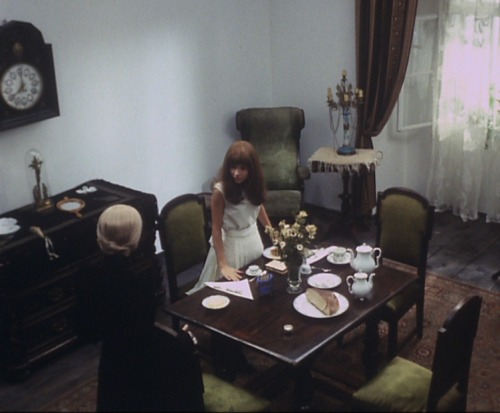
Valerie is amazed to find that her grandmother (now herself again) remembers nothing of her adventures, including the pivotal day where she saw the Weasel in a crowd outside of the window.

Valerie: (Taken aback) Where did you come from?
Grandmother: Church. Where else my child?
Valerie: Did the Missionaries leave?
Grandmother: What missionaries? What’s wrong with you child?
Valerie: Nothing, Grandmother.This exchange is reminiscent of the one between Alice and her sister at the end of the 1951 Disney adaptation of the Alice novels.
Sister: Alice! Alice! Will you kindly pay attention and recite your lesson!
Alice: Huh? (Falls back to sleep) Hmm... (Awakening properly) Oh! Er... (Jumping up) How doth the little crocodile improve his shining tail, and pour the waters of the-
Sister: Alice! What are you talking about?
Alice: Oh! But you see the Caterpillar said…
Sister: Caterpillar? Alice I….Oh really I… Oh never mind, Its time for tea.

Stray notes:
There’s a song called Valerie by the band Broadcast which is directly inspired by this film and by the original nezval novella. Can be listened to here.